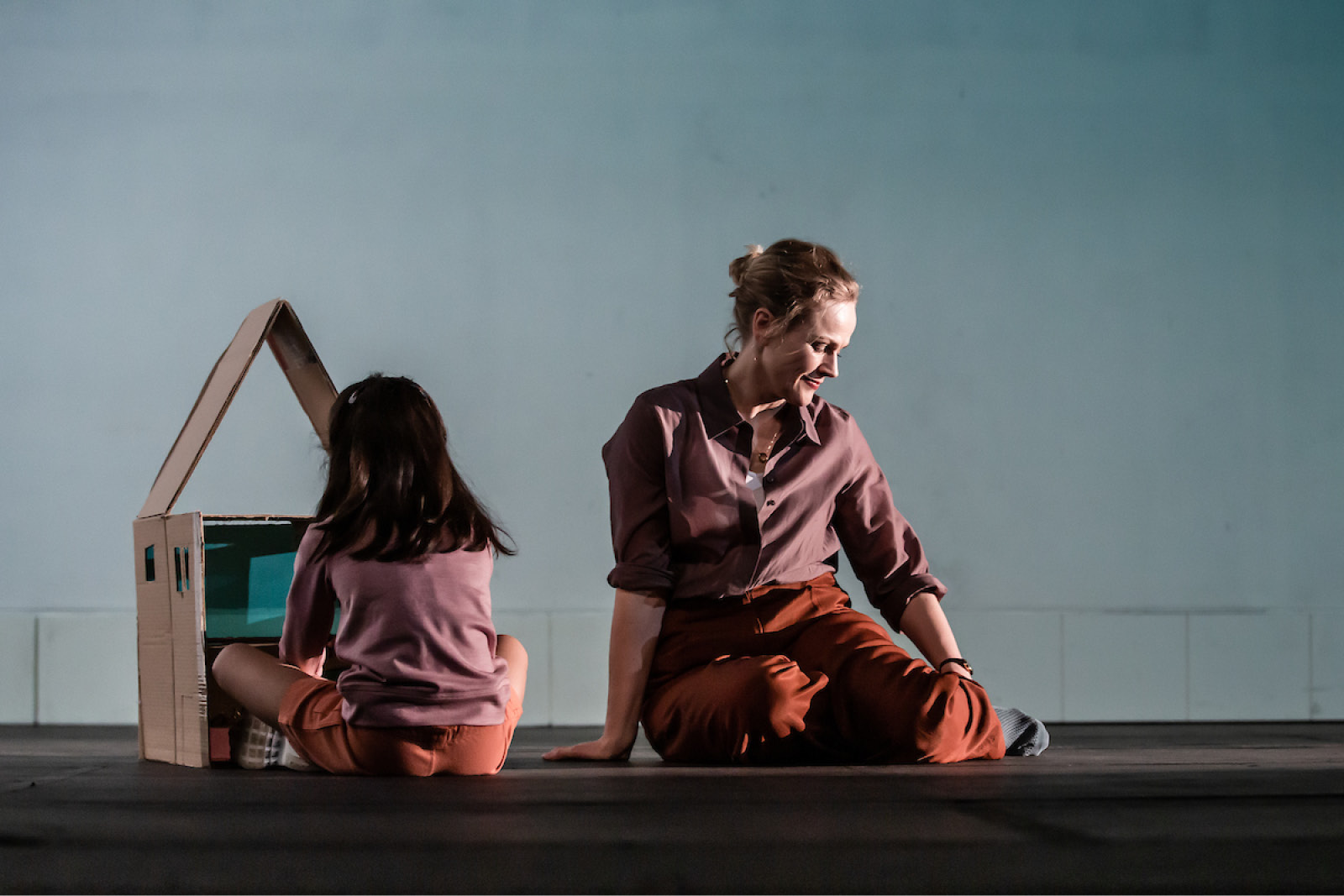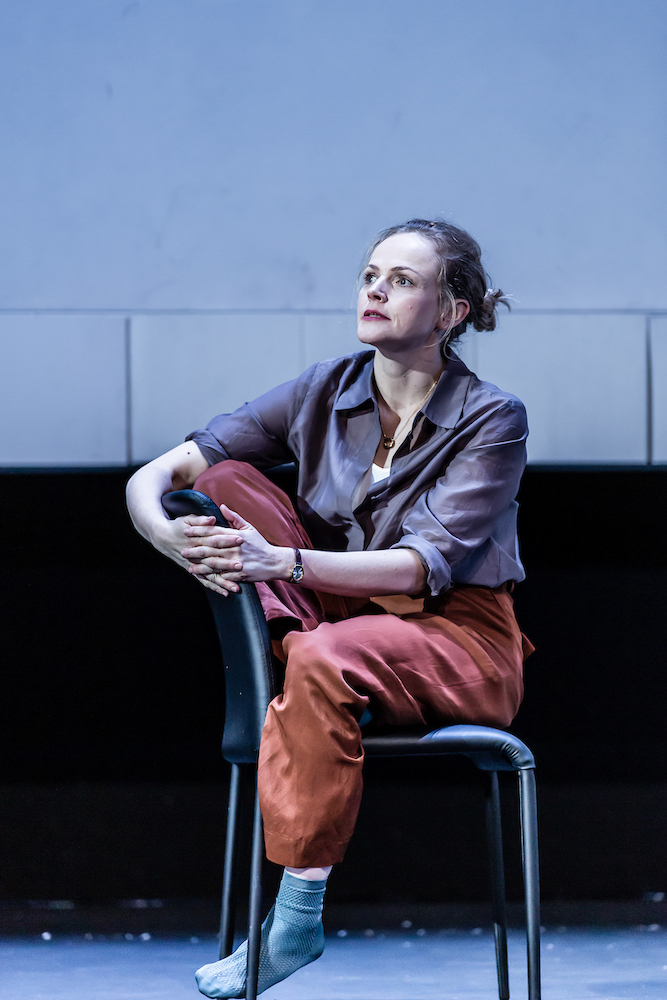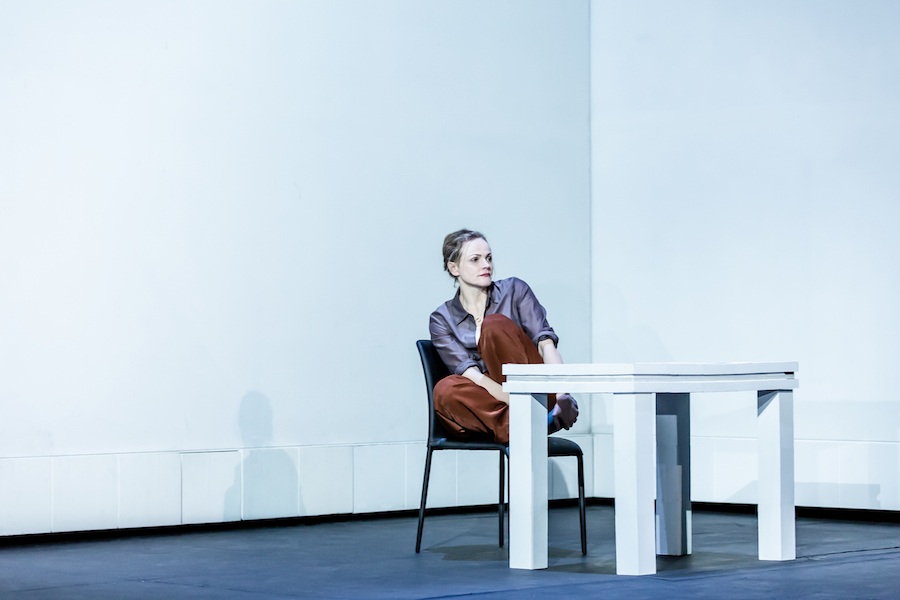In Avalanche: A Love Story, childlings flit on and off the stage, haunting our unnamed protagonist. ‘Childlings’, not ‘children’, she explains – they’re not real enough to earn that name. They exist only in a potent, torturous realm of make believe, frequent reminders of a future denied to her.
 Maxine Peake in Avalanche. Photo © The Other Richard
Maxine Peake in Avalanche. Photo © The Other Richard
Adapted from Australian filmmaker Julia Leigh’s acclaimed 2016 memoir, Avalanche: A Love Story first premiered at London’s Barbican Centre in April as part of Fertility Fest, an arts festival devoted to the science of conception and modern families. A co-production with Sydney Theatre Company, it arrives at the Roslyn Packer Theatre with British actor Maxine Peake reprising her role as a woman in her 40s undergoing IVF.
Known simply as the ‘Woman’, Peake’s character starts trying to conceive at 37 with a partner. When that relationship comes to an end – he accuses her of selfishness after she delays fertility treatment to make her first feature film – the Woman decides to go it alone, undertaking six gruelling rounds of IVF. While audiences will be familiar with many of the story beats – “love fucking” gives way to scheduled sex, potential sperm donors fall through – the ground Avalanche covers and the frank way in which it covers them is engrossing. The roulette-like nature of IVF and its emotional and physical costs are explored matter-of-factly, the Woman quickly consumed by an exhausting cycle of hormone injections, follicle growth and egg transfers. Her optimism, which earlier earns her the nickname “Pollyanna juggernaut”, soon becomes a millstone in the face of fertility specialists’ equivocations and shadowy statistics. “It’s up to you,”, they tell her after each unsuccessful round, and the play makes clear how that sense of choice is a cruelly false one. Keep going, is what the Woman hears, or you won’t have tried hard enough to have a child, won’t have wanted a child enough. The ethics of an unregulated fertility industry, which not only depends on hope but cultivates it, become the through line of this most personal look at grief. “You’ll want to know you did everything you could,” one doctor tells her.
 Maxine Peake in Avalanche. Photo © The Other Richard
Maxine Peake in Avalanche. Photo © The Other Richard
Sensitively directed by Anne-Louise Sarks, the simple but effective production matches Leigh’s unsentimental tone. She and her fellow dramaturgs (Penny Black, Kirsty Housley and Hilary Bell) achieve a remarkable soberness that accommodates both the normality of the Woman’s situation as well as its awful individual impact. What might have made the play more powerful is a deeper consideration of the character’s desire for a child, which often feels of secondary concern to its detailing of the medical procedures. But that decision ultimately feels of a piece with the work’s restraint, which is deliberately narrow in focus.
 Maxine Peake in Avalanche. Photo © The Other Richard
Maxine Peake in Avalanche. Photo © The Other Richard
As the Woman, Peake gives a beautifully calibrated performance as someone whose world becomes smaller and smaller, soon reduced to blastocysts and needles and blood. Precise, open and compassionate, Peake masterfully conveys her character’s complex inner life, hinting at the frustration of a woman who desires both a fulfilling career and a family. Wry observations become freighted with real anguish, her character’s mounting desperation evoked with an admirable economy of gesture.
As the Woman finally begins to accept that the odds are stacked against her, Marg Horwell’s design replicates her tremendous feelings of loss. Her clinical white box set, earlier so claustrophobic, is replaced with piles of snow and ash, a yawning void but also an open space suggestive of possibility. The play ultimately offers a way forward for our protagonist, a message often absent in similar fertility stories and all the more valuable for it.
Sydney Theatre Company’s Avalanche: A Love Story is at the Roslyn Packer Theatre until September 14











Comments
Log in to join the conversation.